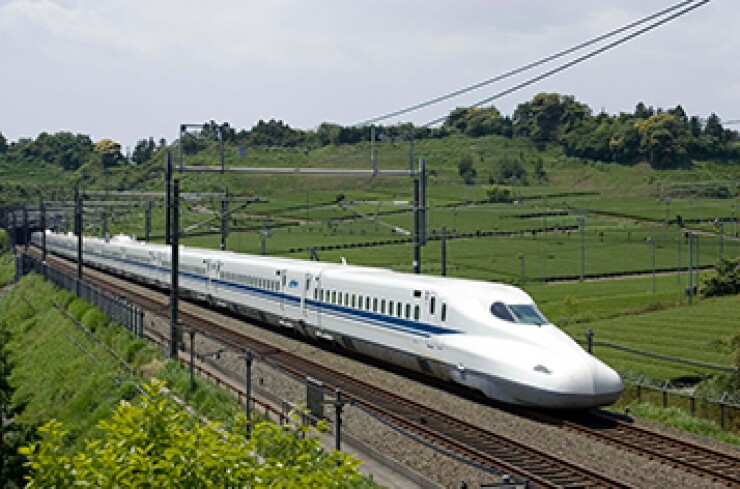
DALLAS -- Opponents of a privately financed, $10 billion high-speed rail system in Texas scored a victory when the federal Surface Transportation Board declined to take jurisdiction over the proposed project.
Texas Central Railway asked the STB in late April to assert its oversight of its proposal for a 240-mile bullet train line, but the panel said Monday it is a state issue because the line between Dallas and Houston would not connect with the national passenger rail system.
"The board finds that the proposed rail line does not require board approval, as it would be constructed and operated entirely within the state of Texas and would not be part of the interstate rail network," the STB said in its finding. "The board is dismissing this proceeding because this proposed intrastate passenger operation would be outside the board's jurisdiction."
Texas Central contended that the line would be part of the national rail grid because passengers would have access to Amtrak stations in Dallas and Houston even though its tracks would not connect with Amtrak stations.
The company, which wants to deploy an electric-powered high-speed rail technology used in Japan, said the STB decision would not delay work on the line.
"Texas Central will study the STB decision before making any determination regarding actions in response to the ruling," a spokesman said. "The project continues to move forward with development activities."
Texas Central said it will not need federal or state funding to build and operate the rail line, but may seek a low-interest federal loan to finance its construction.
The company wants to operate at least 60 trains per day on the proposed HSR line, running at more than 205 mph, between Dallas and Houston.
The company says its trains will connect the two cities in about 90 minutes.
The tracks would run along the top of a 14-foot high berm through the mostly rural areas between the two cities.
Texas Central said its petition to the STB asking for an assertion of jurisdiction followed precedent set by other rail projects.
"Without such clarification, regulatory uncertainty could have impacted Texas Central's project timelines," it said.
Project opponent Rep. Scott Brady, R-Texas, said the line would not provide service to residents in his district because the trains would speed through Grimes, Madison, and Leon counties without stopping.
"This route fractures our rural lifestyle without any direct economic or transportation benefits to our communities," he said.
Brady said that Texas Central turned to the STB in an attempt to evade any potential state laws seeking to slow down or prevent potential state restriction on the rail company's use of eminent domain to acquire property along the route.
The STB ruling is a victory for local residents fighting the project, Brady said.
"This is the answer we fought for," he said of the STB's decision. "This is the first victory in a long battle to ensure that Texas, not Washington, decides the fate of a project hurting our rural communities and landowners."
Several attempts to restrict the HSR proposal failed in the 2015 Texas Legislature, but opponents said they intend to continue the fight in the 2017 session that begins in January.
Kyle Workman, a spokesman for Texans Against High-Speed Rail, said the group doubts the sponsors' contention that the project will not need a public subsidy.
"We know that there is public money coming," he said. "There is no way that Texas Central has figured out the formula that nobody else has ever figured out before."
The legislative fight against the project will continue, Workman said.
"We are going to be challenging them in the next legislative session," he said. "We have a good strategy, and we believe it will be successful."





